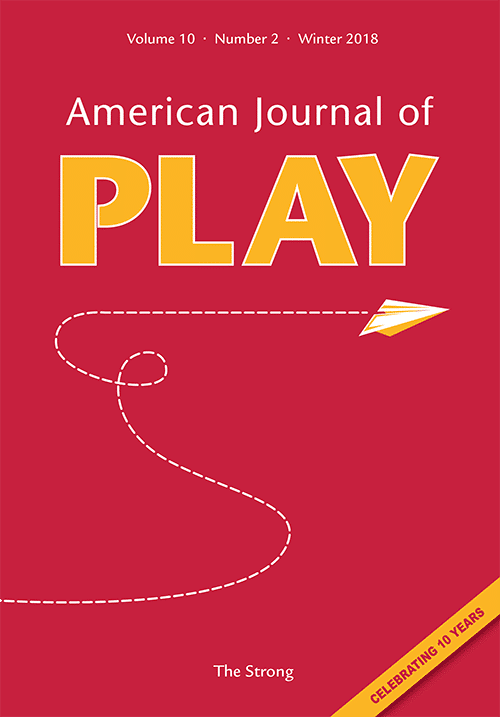Theme and Variation: Arranging Play’s Forms, Functions, and “Colors”
The author counters the common descriptions of play as endlessly diverse, ambiguous, and even paradoxical by describing it as a fundamental experience comparable to three others—ritual, work, and communitas. Play, he argues, entails a distinctive strategy of selfrealization and a strategy for liv-ing. He first examines four basic types of play—exploration, construction, interpretation, and dialogue—and links them respectively to four patterns of self-location: marginality, privilege, subordination, and engagement. He then discusses the character and implications of the four kinds of play and evaluates a profoundly important variation in all play—that between its orderly, cooperative expression and its disorderly, oppositional articulation. Calling the first “green play” and the second “red play,” the author asserts that both are pertinent to all four kinds of play and that both have important implications for self-realization. Key words: communitas; green play; patterns of self-location; red play; ritual; self-realization; types of play; work and play





